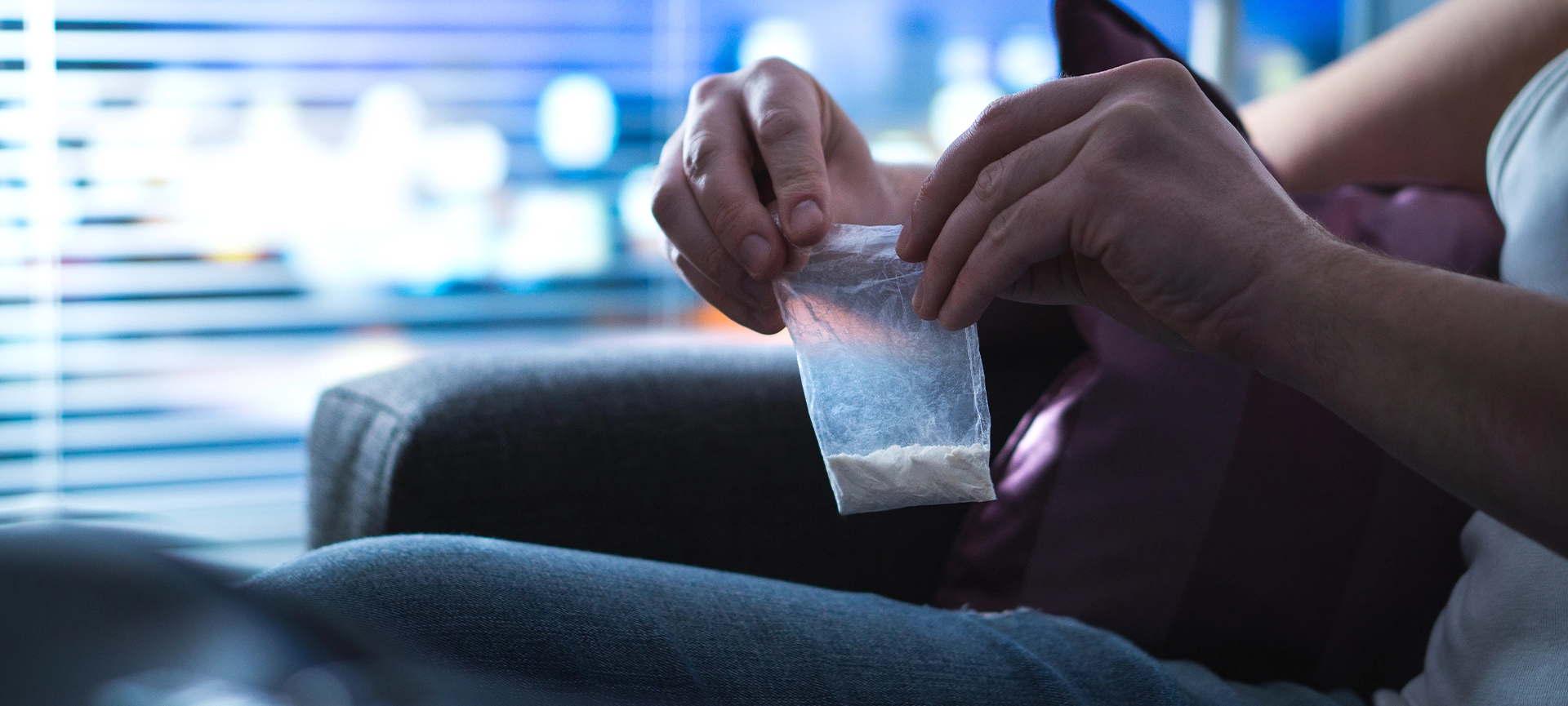The answer to how to break from cocaine addiction is a complicated one. Since cocaine addiction is a severe illness, its treatment can quickly become complex.This drug is a highly addictive stimulant with its abuse becoming widespread. Many people use it recreationally even if it is illegal. In North America, about 15% of the adult population say that they have tried using cocaine at least one time in their lives.
Some people only use it once and never use the drug again. However, a good number of individuals get hooked after their first try. It is a problem because cocaine addiction can be a difficult habit to quit. Yes, it may be challenging, but it is not impossible. There are many ways to treat cocaine addiction.
With regular cocaine use, a person can become addicted and physically dependent on the drug. It means that when the individual stops using cocaine, he or she will experience the many uncomfortable withdrawal symptoms. If you want to break free from cocaine addiction, here are what you should expect when you go through withdrawal.
How Cocaine is Different from Crack
While talking about how to treat or get rid of cocaine addiction, it isn’t uncommon for crack to pop into the conversation. Some people even use the terms interchangeably. For that reason, before talking about how to break free from cocaine addiction, you must know the difference between cocaine and crack.
Now, crack is a free form of coke that has been slightly altered with water and bicarbonate soda. The result of this alteration is a drug that looks like solid white rocks. This treatment makes it such that you can smoke crack. This is unlike cocaine, which is often consumed through other means.
These two drugs’ effects are pretty similar. They include increased energy, feelings of adeptness at various tasks, and euphoria. However, unlike cocaine, the effects of crack are felt a lot faster. This is because crack is smoked and goes directly into the system.
Additionally, because it is smoked, crack doesn’t last quite as long in the system. On average, the feelings it brings dissipates in about 20 minutes. So, crack users need to take a much higher dosage of the drug to maintain their high for quite some time.
Besides these, another major difference between crack and cocaine is in their effects. Drug abuse is generally bad. But, crack use takes it a step further with severe side effects. Once again, this is partly due to it being smoked.
One particularly terrible problem with crack addiction is the crack lung condition. This condition happens after severe crack abuse. It causes serious breathing difficulties, light-headedness and shortness of breath.
Unfortunately, crack addiction is much more challenging to treat. This is because of its more intense high and increased penchant for addiction. Having said all that, let’s move on to cocaine.
Causes of Cocaine Addiction Cocaine is an incredibly potent drug. It directly impacts the neurological systems within the human brain. First, when you use the drug, it alters the parts of your brain dedicated to pleasure, decision making, and memory.
This is even more likely if you use the drug repeatedly. As such, a person who uses it often will find it rather difficult to quit. Their ability to resist the urge will be seriously impaired. This chain of events is why Canada has the 2nd highest cocaine usage numbers in the world!
Secondly, cocaine enhances your extracellular concentrations of serotonin, dopamine and norepinephrine. These are your “happy hormones.” However, while enhancing them, it can also block the transportation of these neurotransmitters.
When you use cocaine repeatedly, you’ll end up getting a condition known as neuroadaptation. This can mean that you’ll become more sensitive to the drug, or you’ll become more tolerant of it. In this case, the latter happens.
Keep in mind that with cocaine abuse, as stated earlier, you already have the inability to resist the cravings. Alongside that is the blockage of your natural “happy hormones.”
Combined with these two factors, an increased tolerance will lead to you needing more of the drug to get the high you want/need. When you keep feeding this urge, eventually, you’ll become addicted as your body won’t be able to function without the cocaine. In the end, you’ll need cocaine addiction treatment to develop specific tools necessary for long-term sobriety.
Related article: How to Overcome Cocaine Addiction?

Understanding Cocaine Withdrawal
If you have been using cocaine and feel that you are physically dependent on it, then you should prepare for withdrawal symptoms. When you quit taking the drug, you must make for the signs that may range from mild to severe. It depends on how heavy you’ve been using the contraband.
A way to understand the withdrawal symptoms of cocaine is to imagine that the good feelings you experience when high are loans. It is something that you have to repay, and that is what happens when you stop using the drug. Expect to feel bad during the crash when you’re on withdrawal. Nevertheless, there are ways that you can prepare for it.
As for how long the symptoms of cocaine withdrawal will last, it depends on the amount and how long you’ve been using the drug. The symptoms may be intense, but they won’t last forever. It may last for several hours to a week. For heavy users, they may experience withdrawal symptoms for months.
Signs of Cocaine Addiction Withdrawal
Every user experiences cocaine addiction withdrawal differently. However, some symptoms are common when it comes to quitting cocaine use. Let’s take a look at the signs of departure so that you can be better equipped to deal with them.
Cravings
Many individuals who are trying to quit cocaine addiction will feel a strong desire to consume more of the drug. It is what we call needs. Cravings are usually experienced by anyone who is trying to break free from addictive substances, not just cocaine.
What drives people to crave for the drug is because they want to get rid of the withdrawal symptoms that they are feeling. Also, they want to feel better. And the only way that they know how to do that is to get high on cocaine.
Changes in Mood
During withdrawal, you may feel irritable, anxious, or depressed. It is normal when you’re withdrawing from cocaine addiction. Even if these feelings are intense, they will pass when you’re over the withdrawal stage.
When you’re feeling all these negative emotions, you may quickly get angry, worried, or down. You must remember your goal as to why you want to quit cocaine use. Always keep your reasons in mind so that your goals will strengthen you.
Fatigue
During cocaine addiction withdrawal, you will also feel exhausted. Usually, you would feel exhausted after getting high on cocaine. It is because you’ve been very energetic or didn’t sleep for several nights while you were high.
Cocaine can hide the discomforts that you would usually feel whenever you are overly active. When the effects of the high that you get wear off, then you will start to feel exhausted. Expect to feel this during withdrawal because your body is trying to repair itself.

Problems with Sleep
While going through cocaine addiction withdrawal, you may feel frustrated because you will find it difficult to sleep. Even if you’re feeling exhausted, the drug withdrawal will cause you problems with sleeping.
You may experience unpleasant and vivid dreams. You may have trouble staying asleep or insomnia. It is also possible that you’d be sleeping a lot or hypersomnia. There are many ways to fix this, such as starting an exercise routine. Exercises can help a lot to regulate sleep.
Increase in Appetite
Appetite increase is another symptom of cocaine addiction withdrawal. While you were high on cocaine, you could go for days without eating properly. When you go through withdrawal, your appetite will return, and there will be plenty of cravings for the food you once liked.
During this time, you must follow a clean and healthy diet. Remember not to overeat because this is bad for your health. Only take in manageable amounts of food at a time. Try your best to stay away from junk food or foods that are high in salt or sugar.
How to Cope with Cocaine Addiction Withdrawal?
As of present, there are no approved medications that can help in reducing withdrawal effects. Nevertheless, there are plenty of strategies for self-care so you can have some relief from the discomforts.
The initial step in breaking free from cocaine addiction is detoxing from the addictive drug. This process may differ because it depends on the amount and length of time that you’ve been using cocaine. However, if you compare the detox process for cocaine with other drugs, it is much shorter. It is just much more intense, though.
During this time when you’re going through detox from cocaine, what you need is get the much-needed support from your loved ones. These people should be able to understand you and what it is that you’re going through.
While you go through detox from cocaine, you will experience withdrawal symptoms. Remember to focus on self-care. Take care of yourself, mentally and physically. Start embracing healthier habits such as exercising, eating tasty and nutritious foods, as well as sleeping right. These will help you to feel much better.
Cocaine Addiction Withdrawal Timeline
The withdrawal symptoms can be severe, but this depends on your cocaine use, such as the frequency and amount. To prepare you on what to expect during cocaine addiction withdrawal, here is a timeline of what usually happens to a person going through addiction recovery.
The Crash
During this phase, you will experience intense symptoms of cocaine addiction withdrawal. It may last for a few hours to some days. You may experience cravings, increase in appetite, fatigue, anxiety, sleepiness, irritability, and depression.
Cravings
After you’ve stopped using cocaine, you may start having cravings for the drug. It may begin to after several hours after your last use. The needs can last for a few weeks. During this time, you will feel a powerful desire to use the drug. It can affect your mood as you would feel anxious, depressed, lethargic, irritable, and distracted. On average, the cravings can last from eight to twelve weeks.

Extinction
In general, you have been sober and clean from the drug for around ten weeks; you will begin this phase called “extinction.” During this time, you will still feel cravings for the drug, but it will not be as frequent or as severe as during the previous phase.
Events in the environment will often trigger your cravings. It could mean seeing your old friends who also use cocaine, experiencing stressful situations, or revisiting areas where you used to do drugs.
Post-Acute Withdrawal Symptoms
Many studies on drug addiction treatment have stated that there is an extended withdrawal period called Post-Acute Withdrawal Symptom or PAWS. At this stage, you will be experiencing emotional and psychological symptoms. These symptoms are said to be concerning a long-term withdrawal process.
Problems with sleeping such as hypersomnia or insomnia, challenges concentrating, fatigue, anxiety, and mood swings are some of the symptoms that you may experience. These may persist for several years since your last use of the drug.
Some researchers believe that the symptoms of PAWS can influence your chances of having a relapse. It is because you would want the troubling symptoms to go away. And the only thing that you know how to do this is to use cocaine.
That is why it is essential to get aftercare treatment for the long term still. It is necessary for a successful recovery, prevention of relapse, and being able to quit drug use for good. The procedure doesn’t end with your graduation from the rehab centre. Aftercare treatment will give you plenty of benefits to ensure that you will never use cocaine again.
Quitting Cocaine Use on Your Own
The first thing that you have to take note of when you will go through cocaine withdrawal is that it can lead to you feeling extremely depressed. This feeling can lead you to entertain suicidal thoughts. In worse cases, there may even be suicidal attempts.
When you quit cocaine use without the help of professionals, it will be much more difficult. If you stop using the drug under the care and supervision of medical professionals, you can benefit from meds for the withdrawal symptoms.
The meds that you will receive during your cocaine withdrawal can help in reducing irritability, mood swings, and cravings, among the many. With this approach, we can reduce the risks of relapsing.
Warnings on Detox without Supervision
When you detox at home on your own, there are risks, especially if you experience severe withdrawal symptoms. Generally, the withdrawal process is safe. However, you may need a medically-supervised detox. It is because withdrawal from cocaine may cause suicidal thoughts, psychosis, paranoia, and depression.
If you are going through severe withdrawal symptoms, you may need to be in an inpatient treatment facility. This way, medical professionals can check on you all the time as you go through the process of detoxification from the drug.
What you have to keep in mind as you go through cocaine detox is that you don’t have to go through it alone. Do talk to your physician if you need that you need more support. You can enroll in an excellent residential treatment centre where you can meet people who are going through a similar ordeal.
Many addiction experts can provide you with several treatment options. These can help you in developing strategies on how to successfully overcome your cravings for cocaine. When you know how to do it, then you will be better equipped to prevent relapses in the future.
Long-Term Treatment for Cocaine Addiction
The first stage of withdrawal from cocaine is known as the crash. It can last for many days. After that, you may continue to feel other symptoms such as low energy, cravings, and irritability for a few weeks.
With long-term treatment for cocaine addiction, the focus is getting you into individual counselling. It will incorporate behavioural therapy where you can start learning new skills to help deal with cravings. These skills will also help in changing your behaviours and thoughts that contributed to your drug use.
Contingency management is among the effective treatment options that you can try. It uses motivational incentives so that you will be more encouraged to abstain from using drugs. For example, whenever you get a clean result for your drug test, you can get vouchers in exchange for it. You can use the coupons for dinner at a restaurant or a gym membership. It can be things or experiences that can help you to continue your abstinence from drug use.

Why You Need Help When Quitting Cocaine
As a very addictive drug, quitting cocaine use can be challenging. However, when you know and understand your options, it can be much more comfortable. That’s why it’s essential to know the benefits of stopping drug abuse. You should also know what to expect when you discontinue using cocaine.
A lot of individuals addicted to cocaine want to quit. However, many of them are also afraid or embarrassed to ask for help and support. Do you feel the same way? Maybe you have worries such as what people would think of you because of your cocaine addiction. You may also be worried that you won’t be able to afford treatment.
These are all valid worries and feelings. However, if you keep on thinking about these things, it will not help you in your goal of recovering from cocaine addiction. If there’s anything that you should remember about recovering from drug addiction, it is that you need other people. Yes, you think you can do it alone, but things will be much, much easier if you have people to help you.
When you try to quit drug use on your own, you will experience many challenges. There’s a big chance that your attempt to stop will fail. It is because of some reasons. For example, you may not have the best structure in your recovery approach.
Quitting cocaine use on your means that you won’t have the support of a therapist or a support group. It is essential during your recovery. Also, when you do things on your own, the tendency is for you to keep your old habits or still be in touch with people who did drugs with you. We can correct this with the help of addiction treatment experts.
Lastly, when you try to quit drug use on your own, you may not be ready to deal with the withdrawal symptoms that you will be experiencing. You may not know what to do when you’re incredibly depressed. It can be dangerous as it may lead to suicidal thoughts.
Types of Programs for Cocaine Addiction Treatment
Recovery programs for treating cocaine addiction are structured. It will benefit you because you will get well-trained professionals who can help you during recovery. Also, you will be able to get support as well as support those who are going through the same ordeal as you. In a structured treatment program, here are what you can expect:
- With a residential or inpatient rehabilitation program, you can have a safe and supportive environment. You can live them while you are completing your recovery program. In an inpatient treatment centre, there will be treatment plans provided for you. It includes your detox, group and individual therapy, supervision and monitoring, and your aftercare program.
- With outpatient treatment programs for cocaine addiction, you will have similar services that you would get if you while enrolled in a residential treatment centre. The only difference is that in an outpatient facility, you do not have to live in the centre.
- In a treatment program for cocaine addiction, you will have individual therapy or counselling. It will work with a therapist who is an expert on addiction treatment. You will get assistance in your recovery by addressing various issues about your addiction and the other problems that may arise during treatment.
- It includes group therapy or counselling. It serves similar functions as that of individual therapy. However, with group therapy, you can interact with other individuals who are also trying to recover from their addiction. You can learn a lot from these interactions.
- The 12-step program is also an essential component of addiction recovery. While it is not the same as therapy or counselling as a therapist does not facilitate it, you can still benefit from it. You get to have a structured session where you can get reliable support from your peers as you go through your process of recovery from cocaine addiction.
If you’ve been using other substances apart from cocaine, it may cause medical and mental health hazards. To address this, it will need a specialized treatment program for both cocaine use and other substance use.
Related article: Cocaine Use Statistics in Canada
Different Treatment Approaches for Cocaine Addiction
Most of the inpatient treatment programs for cocaine addiction can last from thirty to ninety days. It may vary from case to case. Many recovering individuals enrolled in residential or inpatient rehab programs continue to get outpatient aftercare treatment. It continues even if they’ve graduated from their inpatient treatment program.
With residential rehab programs, the first process is medical detox. During this phase, you will undergo detoxification from the drug. It means you will be supervised round the clock as you go through the challenging period of withdrawal. It will be a tough time, but there will be experts who will provide you with guidance and support.
You will benefit a lot from an inpatient rehab facility if you feel the need to stay away from your home or neighbourhood if those places increase the risks of relapse. Many studies state that individuals will have better chances of a successful recovery while enrolled in an inpatient rehab centre. The facility can protect them during their most vulnerable state during recovery.
Many formal therapies and counselling programs addressing addiction use techniques from Cognitive Behavioural Therapy. These techniques are scientifically proven to be effective. There are also Alcoholics Anonymous or Narcotics Anonymous that incorporate approaches similar to formal therapies.
Recovering from Cocaine Addiction
When you take the first step towards cocaine addiction recovery, you should be aware that this is going to be a long process. But don’t be disheartened. While recovery may be a lifelong endeavour, it doesn’t mean that it will be challenging all the time. It merely means that you would have to make a daily decision to remain clean and sober.
So, after you’ve finished your inpatient treatment program, you should continue addressing any issues through outpatient aftercare programs. There are many support groups, such as the 12-step programs that can provide you with adequate and long-term care. It will go on after you’ve graduated from your inpatient recovery program.
There are also other options that you can consider. An example of this is halfway houses or sober living homes. When you stay in these homes, you will benefit from regular counselling visits as well as recovery maintenance. These homes offer these services, and they are more intensive compared to outpatient treatment programs.
Benefits of Stopping Cocaine Use
The use of illicit drugs does your body no good. There’s no benefit to it. If you have a drug addiction to drugs such as cocaine and you want to stop using it, that’s already a good start. Your willingness to quit your drug use and break free from drug addiction is essential. It will fuel you to go through the process of treatment and recovery.
When you stop using cocaine, you will start to experience plenty of benefits. Firstly, your body will begin to recover and heal itself from years of drug abuse. Second, you can begin to restore relationships that came to ruin because of your cocaine addiction. Third, you can rebuild your life and your future again. There are many benefits to quitting cocaine. Let’s take a look at some of them.
- There is a reduced chance of developing health problems. These risks will almost instantly diminish. Some of the health problems that you may encounter if you don’t stop are respiratory problems, seizures, and cardiovascular issues. You may also are at risk of contracting infections such as HIV and hepatitis if you use the drug intravenously.
- You will start to experience better sleep when you quit cocaine use. Many individuals who stopped using drugs experienced that their quantity and quality of sleep significantly improved once they stopped using cocaine.
- The behavioural consequences that are associated with drug use lessen as well. Some examples of these are criminal consequences because of cocaine possession and use. You will also experience improvement in your self-control as well as your goal-directed behaviours.
- Your mental health will improve when you stop using cocaine. Individuals who are recovering from cocaine addiction attest that they feel less stressed. It is because quitting drug use stopped the cycle of the high and the crash. Cocaine addicts experience this regularly.
- When you stop drug use, you are less likely to develop mental illness. Using cocaine for a long time can cause you to develop symptoms of mental health problems such as depression, psychosis, anxiety, as well as suicidal thoughts.
- Your finances will also improve if you stop the bad habit of using illicit substances. Once you break free from cocaine addiction, you will no longer have to spend your money on your bad habit of cocaine use.
- When you’re free from cocaine addiction, you will have more opportunities at getting a good job. You can start focusing more on keeping your job, building your career, as well as earning a good living.
- Another benefit of quitting cocaine is you get to have improved cognitive abilities. You will notice that you will enhance your ability to pay attention, focus, abstract thinking, and other critical cognitive skills and abilities.
- Lastly, your self-control and your self-confidence will also improve. The more that you see the positive changes happening in your life, you will feel more and more confident about yourself.
What Factors Determine How To Quit Cocaine?
Some of these factors include the length of time that you’ve been consuming the drug, the amount of cocaine you’ve been using, and how regular you use it. Another factor is if you’ve been taking cocaine along with other substances such as benzodiazepines, alcohol, and other stimulants.
When you quit cocaine, you should know that your issues and problems won’t disappear instantly. It won’t be able to change the situations that you are in at the moment. You have to remember that you don’t have control over many things for now. But you’re working on that.
Soon, you will have a less stressful life and that you will have the ability to control yourself more. You will also be more equipped to deal with whatever problems that may come your way as you re-enter the world as a productive and sober individual.
Top Tips on How to Quit Cocaine Use
There are many ways on how you can quit using cocaine. Most of them are very easy to follow. Keep this in mind. You have to be committed to your goal of staying clean and sober. These suggestions will help a lot in breaking free from cocaine addiction.
The first step is to prepare yourself to deal with intense cravings for the drug. You should be able to develop your plan on how to manage the stress that you will experience. Some of the things you can do would be to try exercising or meditating. Also, look for social support groups so you will have people to count on whenever the need arises.
Look for alternative activities that you can enjoy. Use such activities to do something else with the time that you usually spend on consuming cocaine. What is most important is that you find new interests that you will enjoy and have fun doing.
Try your best to avoid places and people that remind you of your drug use. When you don’t do anything to avoid those, you are more at risk of relapsing and going back to your old habits of using cocaine.
Check out structured programs for treatment. Such programs may either be outpatient or inpatient. Rehab centres offering inpatient options provides the structure and know-how on how to stay clean. It will also keep you from the negative influences when you are most vulnerable during your recovery phase. After the inpatient program, you will need a long-term aftercare plan at an outpatient centre. It will ensure that you remain drug-free.
Try attending support groups like Narcotics Anonymous. These programs will provide you with the support and encouragement that you’ll need during your cocaine addiction recovery.
How to Help a Cocaine Addict Recover
If you have a loved one who has problems with cocaine addiction, you would want to help them recover from it for sure. However, you must learn as much as you can about cocaine addiction, treatment, and recovery. By then, you will know how to provide them with the support that they need.
Be Understanding
The first thing that you have to remember when you want to help a loved one with cocaine addiction is to be compassionate and understanding. You would want to assure your loved one that you are in full support of his or her recovery from addiction. Make them feel that you recognize that what they’re going through is not easy, but you will always have their back.
Make it a point to show them that you will be there as part of their support system during the whole process of treating their cocaine addiction. Even if your loved ones experience relapse, don’t get angry at them. Instead, continue to encourage them because that will mean so much for their recovery. Always be kind and understanding to your loved one who is going through recovery.
Be Careful with Your Choice of Words
When talking to your friend or family member who has problems with cocaine addiction, don’t use language that will stigmatize them. Don’t blame them for the addiction. Imagine your loved one suffering from any other kind of disease because that’s what an addiction is. Be compassionate and caring so that they will be more encouraged to get better.
Addiction is a chronic brain disease. Even if your loved one decided themselves to start using cocaine, the changes that happened in their brain made stopping very difficult for them. Be prepared for the times when your loved one will be angry or will rationalize their drug use. They may even deny that there are problems with it. These are common scenarios.
Be Honest

What you can do is to tell your loved one that you’ve seen how the drug use ruined lives. Tell them that you’re concerned, without anger and judgment, about other members of the family who care about them. That those people are also suffering because of the problems that cocaine addiction has brought.
Make it clear to your loved one that you don’t like seeing them suffer because of their addiction to drugs. Don’t hesitate to ask them if they want to get help because the chances are that they genuinely do. However, if they don’t agree to get help, don’t feel frustrated. Be patient and determined to help your loved one. Give them some time, and then you can try to ask again.
How to Stage an Intervention for Your Loved One
An intervention is when there is a meeting between friends, family, and other loved ones for an individual who is suffering from cocaine addiction. Do interventions without the person with addiction problems knowing. Since they will get surprised, it is common that they will feel angry and upset about it.
Nevertheless, don’t let this deter you from helping your loved one to get help for their addiction. During the intervention, the family and friends of the addict will be highlighting particular behaviours and events when cocaine addiction has affected them. The goal of this intervention is to encourage and motivate the person with cocaine addiction to enter into a rehab centre voluntarily.
Seek Help from an Expert
Sometimes the person with cocaine addiction is likely to have mood swings that are extreme or violent outbursts. It would be best for everyone to first seek the advice of a medical professional or an expert in addiction intervention. It will help everyone significantly because the expert will be able to prepare them for what may happen during this intervention period.
Before the actual intervention, it is necessary to first have a meeting without the addicted friend or family member. It is so that everyone can help in preparing an action plan. Doing this will also make everyone calm when the intervention happens.
Stay Calm
Admittedly, some feel hurt, angry, and frustrated about the family member’s addiction. It is something that should be processed because strong emotions like these won’t be helping the intervention process. Being angry at the addict won’t push him or her to seek help. Instead, the individual may feel angry and hurt as well and would instead run away from the meeting.
Be Patient
If the first intervention did not work, don’t be discouraged. Instead, try to modify the approach. Maybe the group was too intimidating for your loved one with addiction problems. Make sure that everyone is on the same page with regards to getting the person into a rehab treatment centre. An intervention is not the time to blame the person or express anger at him or her. So be as patient and as understanding as you possibly can.
Takeaway
Cocaine addiction is not something to be taken lightly. It is a severe illness that should be dealt with as soon as possible. If you’re a cocaine user, who wants to quit, know that it’s never too late. Even if you think that drug use has ruined your life, don’t let that stop you from getting help. For as long as you choose to stay alive, each day will be a new chance to make things right.
Soon enough, you will see the improvements in your health, relationships, finances, and other vital aspects of your life. The important thing first is to recognize that cocaine addiction is a problem. The next thing to do is to seek help. Don’t feel embarrassed that you need help. We all need a sound support system to go through life’s challenges.
If you’re ready to enroll in a treatment centre for addiction, don’t hesitate to call us here at Addiction Rehab Toronto. We’ll be here to give you all the help and support that you need to break free from the chains of cocaine addiction.
Related article: How Much Does a Drug Addiction Rehab Cost in Canada?







